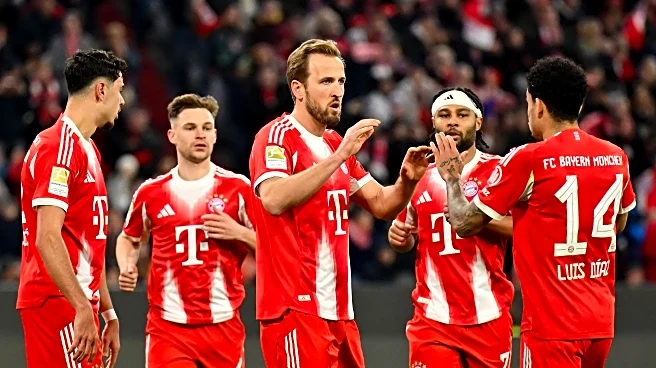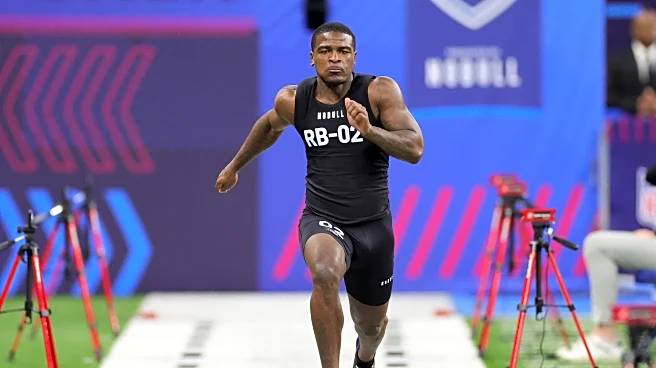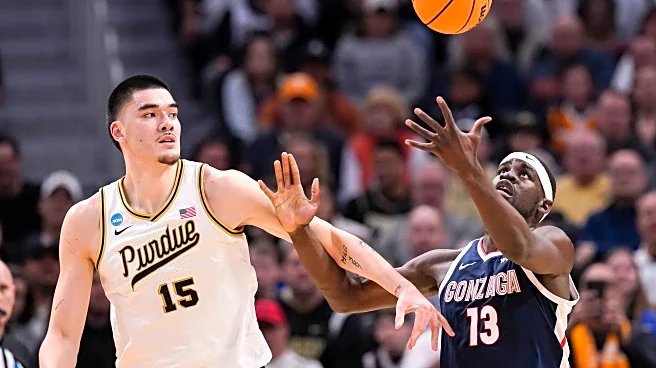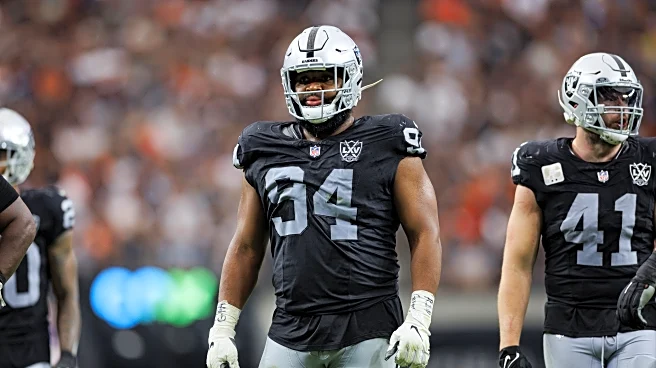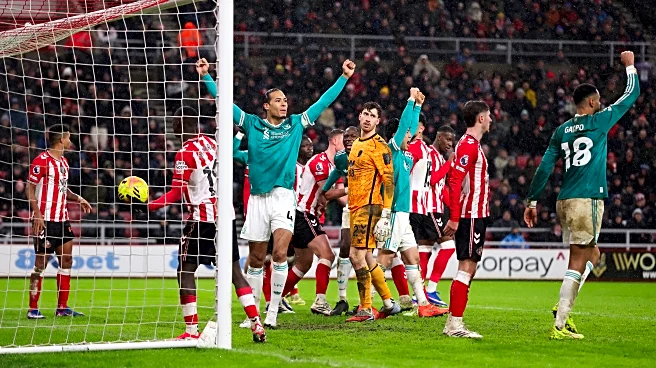What's Happening?
Minnesota Lynx star Napheesa Collier recently criticized the leadership of the WNBA, sparking a wave of support from other players, including Indiana Fever guards Caitlin Clark and Sophie Cunningham. During exit interviews following Indiana's season-ending loss, both players expressed dissatisfaction with the league's leadership and officiating. Cunningham was particularly vocal, criticizing WNBA Commissioner Cathy Engelbert and echoing Collier's sentiment that the leadership is failing the players. Clark emphasized the importance of strong relationships in leadership, while Cunningham suggested that former players should be involved in decision-making to improve the league's operations.
Why It's Important?
The criticism from high-profile players highlights ongoing issues within the WNBA, particularly concerning leadership and player relations. This discontent could impact the league's reputation and its ability to attract and retain talent. The players' call for better leadership and officiating standards suggests a need for structural changes within the league. If these issues are not addressed, it could lead to further unrest among players and potentially affect the league's growth and viewership. The involvement of NBA players in the conversation underscores the broader implications for professional basketball.
What's Next?
The WNBA may face increased pressure to address the concerns raised by its players. This could involve revisiting leadership strategies, improving officiating standards, and potentially involving former players in decision-making roles. The league's response to these criticisms will be crucial in determining its future direction and maintaining player satisfaction. As players like Clark focus on recovery and preparation for future activities, the league's ability to address these issues will be closely watched by stakeholders and fans alike.
Beyond the Headlines
The players' criticism also raises questions about the role of leadership in sports organizations and the importance of player relations. The call for former players to take on leadership roles suggests a shift towards more player-driven governance in sports. This could lead to long-term changes in how sports leagues are managed, with a greater emphasis on understanding the needs and perspectives of athletes.




